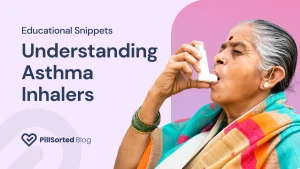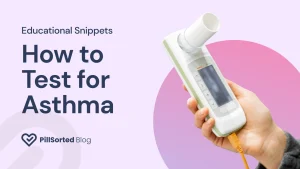Heart Disease Symptoms You Should Never Ignore

Heart disease, which you may also hear referred to as Coronary Heart Disease (CHD), or Cardiovascular Disease, includes conditions such as coronary artery disease (blood vessel disease), heart failure, and irregular heartbeats (arrhythmias). Whatever you decide to call it, heart disease is a leading cause of death in the UK and worldwide and should be taken seriously.
That’s why taking care of your heart and recognising heart disease symptoms early is so crucial to your health. In this article we focus in on the symptoms you should never ignore, and give you some pointers on heart health and medications.
In this post:
- Heart disease symptoms you should never ignore
- How to keep your heart healthy
- Heart disease do’s & don’ts
- Medication to help manage heart disease symptoms
- Main takeaways
- References
Heart Disease Symptoms You Should Never Ignore
Everyone is different and won’t have the same heart disease symptoms—unfortunately some people get no warning signs at all. But if you do experience any of the symptoms mentioned below—especially if they are severe, persistent, or combined with other warning signs, don’t ignore them—seek medical attention promptly to undergo appropriate evaluation and receive treatment.
Chest pain (angina) or discomfort
Chest pain is the most common heart disease symptom. Often triggered by physical exertion or emotional stress, it usually comes on as a feeling of tightness, pressure, squeezing, or burning sensation in the chest, often behind the breastbone or upper belly area. This pain may radiate to the arms, neck, jaw, back, or stomach. You may also experience shortness of breath, sweating, nausea, or lightheadedness.
Shortness of breath
Shortness of breath, known medically as dyspnea, is another very common heart disease symptom. Breathlessness can occur suddenly or develop gradually over time. Of course you can get short of breath for many reasons, but it is considered a possible symptom of heart disease if it worsens with physical activity or occurs while you are lying flat.
Fatigue
Fatigue that may be debilitating or extreme tiredness even after you’ve gotten plenty of rest can be a symptom of underlying heart disease—especially if it occurs together with other heart disease symptoms such as chest pain and shortness of breath. It can result from reduced blood flow to the muscles and tissues, decreased oxygen delivery to the body, or impaired heart function.
Irregular heartbeat
An irregular heartbeat, or arrhythmia, occurs when the heart beats too quickly, too slowly, or as the name implies, with an irregular rhythm. People often describe irregular heartbeats as a racing or fluttering sensation in the chest. You may also experience dizziness, lightheadedness, fainting, or chest discomfort. While occasional palpitations are common and usually harmless, frequent or persistent irregular heartbeats may indicate underlying heart disease.
Swelling
Sudden or significant swelling in the legs, ankles, feet, or abdomen, especially if accompanied by other symptoms such as shortness of breath or fatigue, can be a sign of heart failure or other cardiac conditions. It happens when the heart is unable to pump blood efficiently, leading to fluid buildup in the body’s tissues.
Feeling faint, lightheaded, dizzy or nauseous
Dizziness, lightheadedness, or fainting spells can when you don’t have enough blood flow to your brain. You may experience these symptoms alone or together with other warning signs such as chest pain, shortness of breath, or palpitations. And they may occur suddenly or develop gradually.
Numbness
Some people report a weakness or numbness or coldness in their legs or arms.
Tips to keep your heart healthy
Keeping your heart healthy is the best way to prevent or slow down heart disease.
Get regular health screens
Regular screening can help you test for conditions such as diabetes, high blood pressure and high cholesterol that damage your heart and blood vessels that lead to heart disease. Here are the test you should take:
- Blood pressure test (annually, but your GP may ask you to monitor your blood pressure more frequently at home)
- Cholesterol level test (annually)
- Type 2 diabetes test (every 3 years)
Stop smoking
One of the best thing you can do for your heart is stop smoking. Cigarette smoke reduces oxygen to your lungs and the chemicals in tobacco damage your heart and blood vessels. Not good! Fortunately, your risk for heart disease starts going down almost immediately—as soon as one day—after quitting. If you are having trouble weaning yourself off of cigarettes, nicotine patches or gum such as Nicorette may help.
Get active
Physical activity has many heart benefits. It strengthens your heart and improves lung function, and helps you maintain a healthy weight. You can start simple, something is better than nothing. Try to work your way up to 150 minutes a week.
Eat heart smart
A heart healthy diet can protect your heart and reduce your risk of diabetes and high cholesterol. Be sure to eat plenty of vegetable, fruits, beans, lean meats and fish. Opt for healthy fats such as olive oil. Limit salt, sugar, processed carbohydrates, saturated fat (found in red meats and full-fat dairy), trans-fats (found in fried food like chips and baked goods), and alcohol.
Get plenty of sleep
The importance of sleep has been neglected for years and is finally getting the attention it deserves. Getting enough sleep is absolutely key to heart health. Most adults need at least 7 hours of sleep. Studies have shown that people who slept less than that had an elevated risk of heart failure.
Heart Disease Dos & Don’ts
| Do | Don’t |
|---|---|
| Take heart disease symptoms seriously | Don’t ignore heart disease symptoms |
| Get emergency medical help if you have heart disease symptoms, especially if they are sever or in combination with each other | Don’t smoke |
| Eat a heart healthy diet | Don’t forget to exercise |
| Get regular screenings for blood pressure, cholesterol, and type 2 diabetes | Don’t eat saturated fats & processed foods |
| Get exercise | Don’t forget to get regular screenings |
| Get a minimum of 7 hours of sleep | Don’t self-medicate, be sure to talk to your GP or pharmacist |
| Follow your doctor’s advice for medications | Don’t hesitate to get emergency medical attention |
Medication to help manage heart disease symptoms
Medications for heart disease are usually prescribed after lifestyle changes alone, such as diet and exercise, are not sufficient to manage the condition or reduce the risk of complications. Some OTC medications and supplements may also help manage certain aspects of heart health, but you should talk to a health professional first.
Common prescription medications
You’ve probably already heard of statins used to lower cholesterol, and beta-blockers used to help regulate heart rate and blood pressure. But there are many other prescription medications your GP might prescribe depending on your heart disease symptoms.
For example, there are also angiotensin-converting enzyme (ACE) inhibitors or angiotensin II receptor blockers (ARBs) taken to widen blood vessels, anti-platelet medications to prevent blood clots, and diuretics to reduce fluid retention and lower blood pressure. Medications like antiarrhythmics are often prescribed to help to manage irregular heart rhythms, while others like vasodilators widen blood vessels to improve blood flow.
Common OTC medications & supplements
- Low-dose aspirin for preventing blood clots and reducing the risk of heart attack or stroke
- Fish oil supplements such as cod liver oil containing Omega-3 fatty acids to help lower triglyceride levels
- Coenzyme Q10 (CoQ10) supplements to help improve heart health and energy production in cells
- Magnesium, naturally present in a variety of foods, available as a supplement, plays an important role in heart rhythm regulation and muscle function

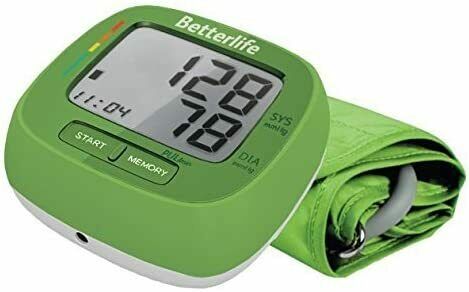
Betterlife Blood Pressure Arm Monitor
The Betterlife Blood Pressure Arm Monitor is a clinically validated and user-friendly device that measures blood pressure and detects irregular heartbeat, all with the convenience of testing at home. It features innovative technology, an easy-to-read display, and a 60-reading memory. The latex-free upper arm cuff ensures accurate readings, while the monitor also detects irregular heartbeat. It comes with a storage case and is suitable for both left and right arms.
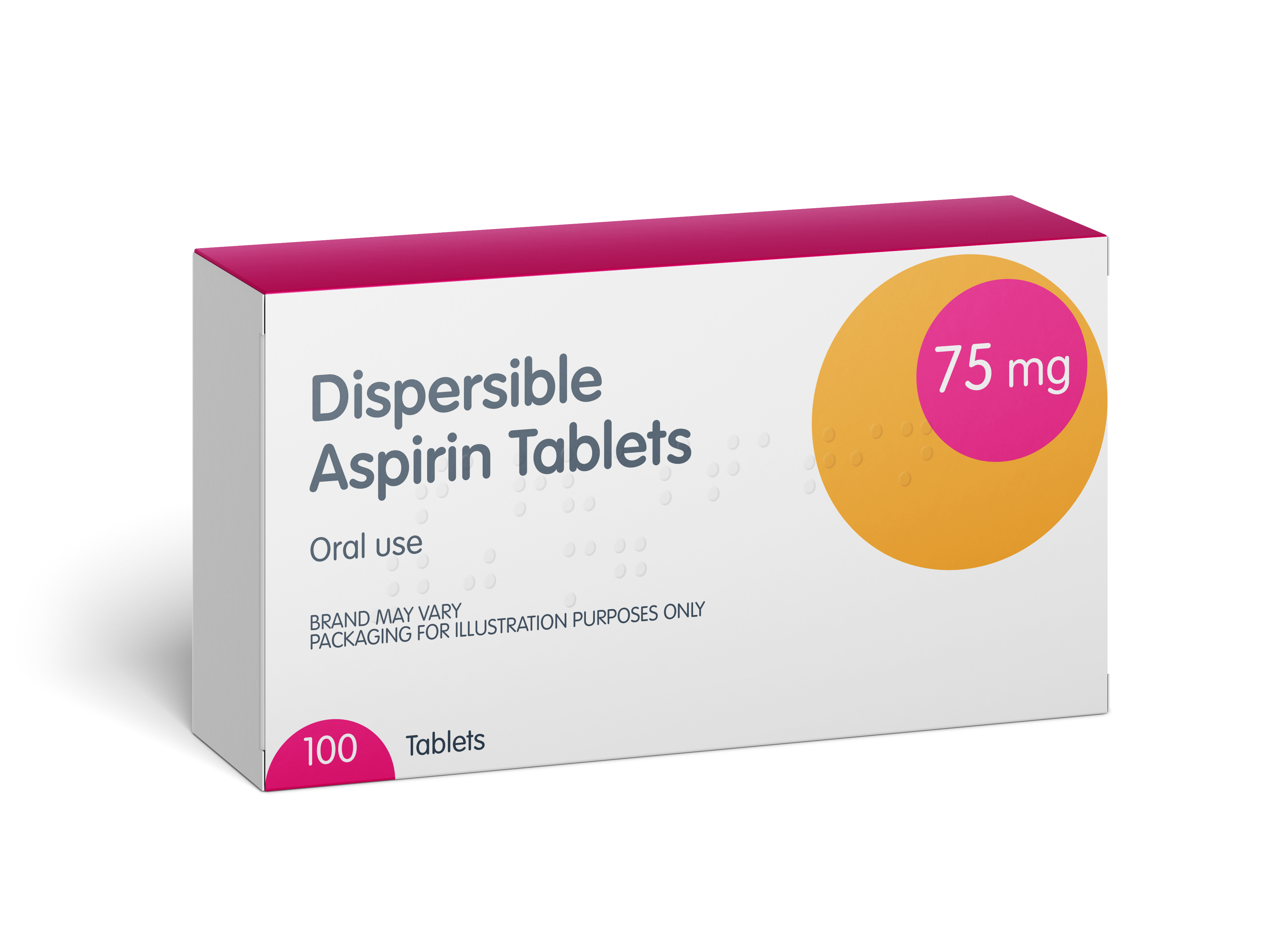
Dispersible Aspirin 75mg – 100 Tablets
The Dispersible Aspirin Tablets containing 75mg of the active ingredient aspirin are intended for individuals who have angina, suffered a heart attack or stroke, or underwent bypass surgery. This type of aspirin is considered low dose.
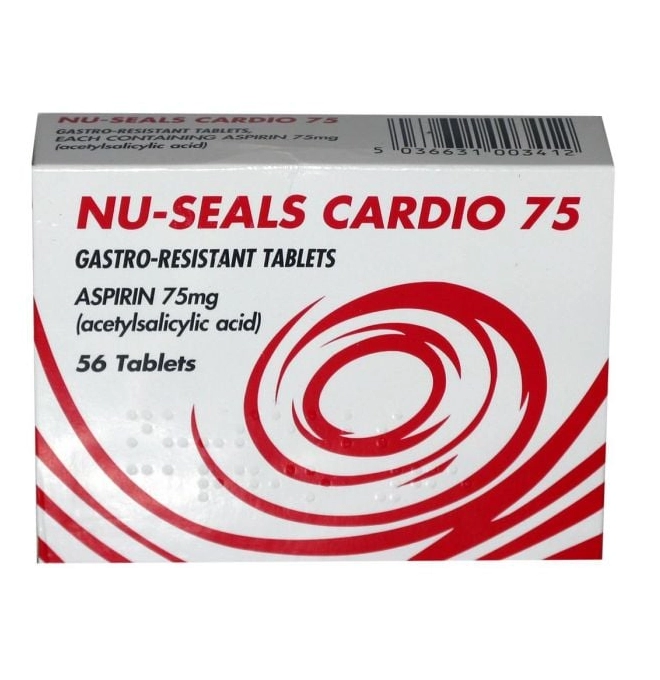
Nu-Seals Cardio 75 – 56 Tablets
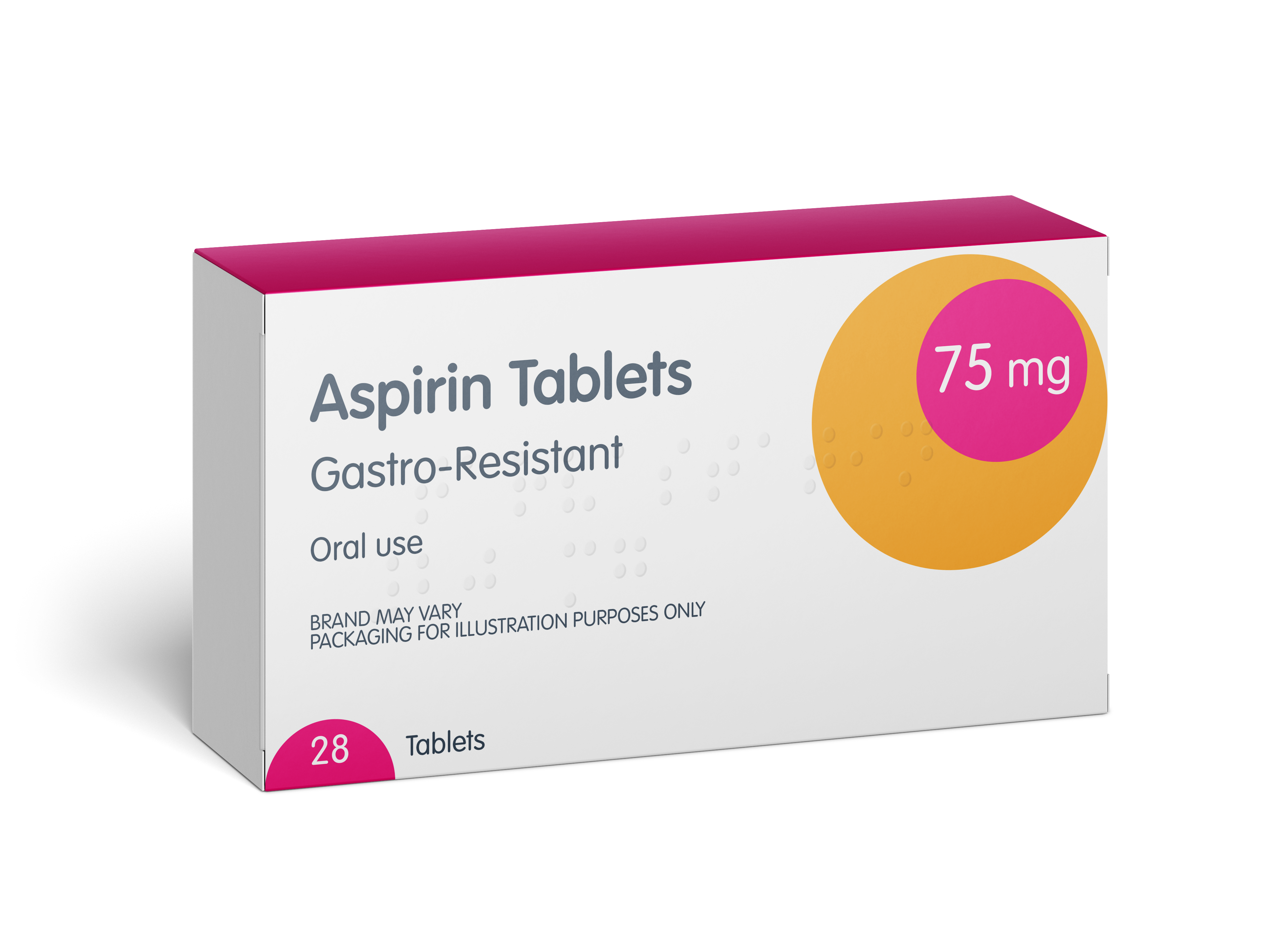
Aspirin 75mg Gastro-Resistant – 28 Tablets
Aspirin Tablets Gastro-Resistant are an effective pain relief medication that provides relief from mild to moderate pain, fever, and inflammation. These tablets have a gastro-resistant coating, which helps protect the stomach from irritation. Aspirin is a widely trusted and commonly used active ingredient for its anti-inflammatory and analgesic properties.
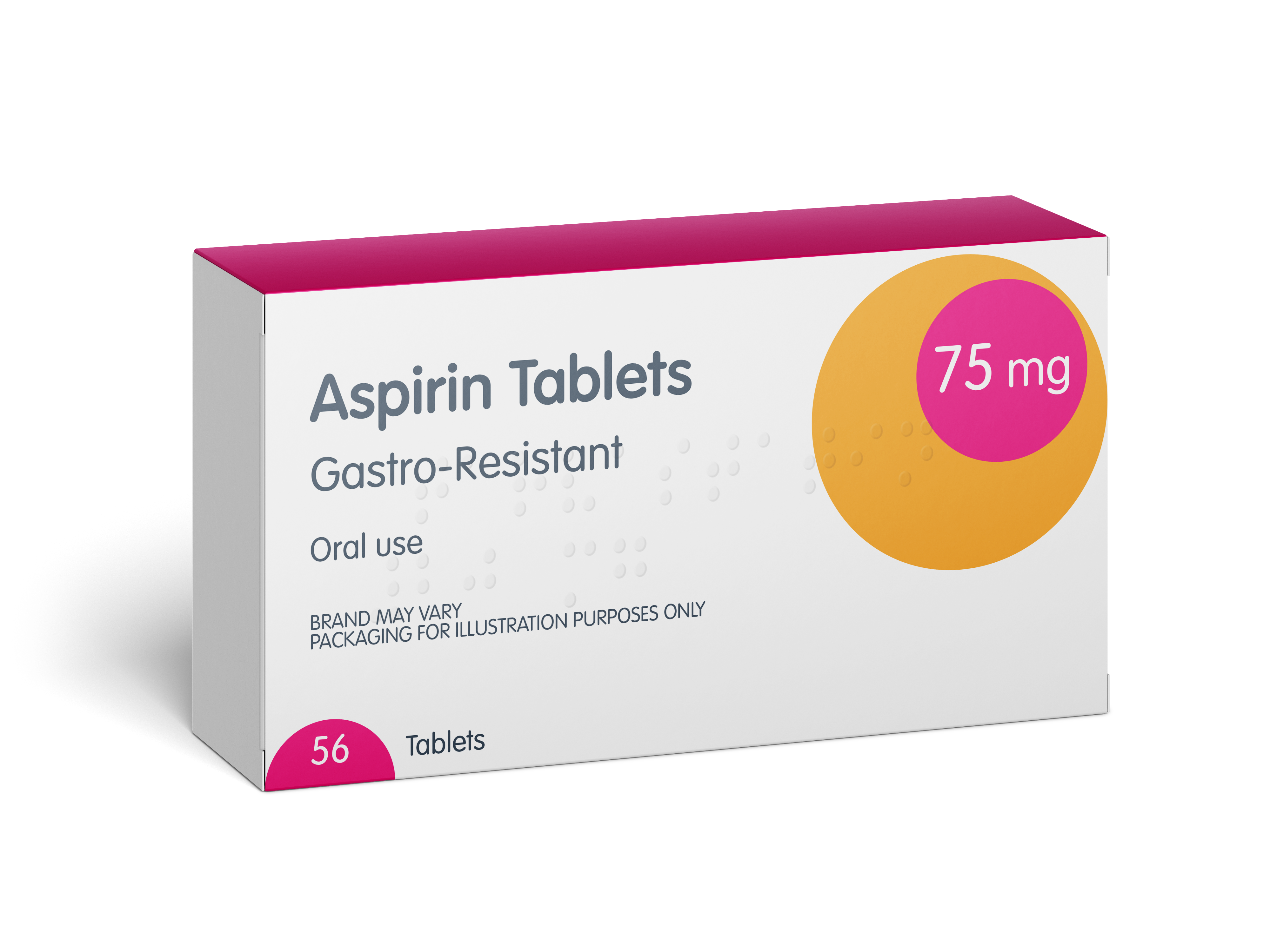
Aspirin 75mg Gastro-Resistant Tablets – 56 tablets
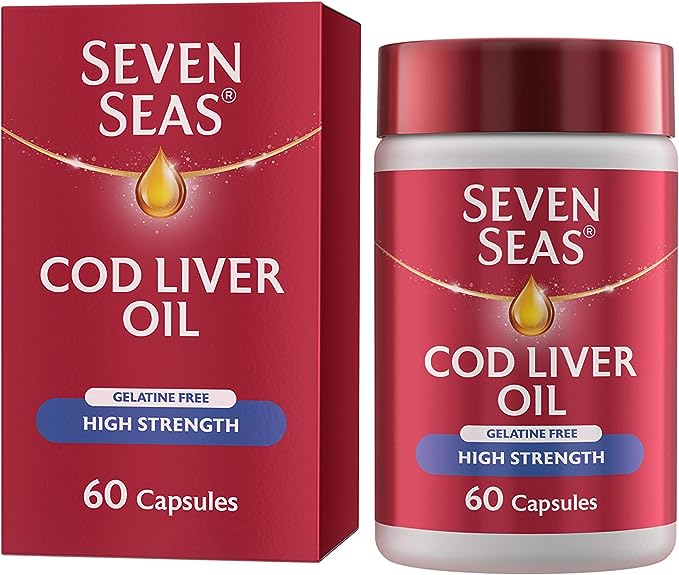
Seven Seas Cod Liver Oil High Strength – 60 Capsules
Seven Seas Cod Liver Oil is a high-strength supplement designed to support everyday good health.
Main takeaways
- Heart disease symptoms should not be ignored.
- The most common symptoms of heart disease are chest pain and lack of breath.
- Severe symptoms, prolonged symptoms, or a combination of symptoms, are clear warning signs to get medical help immediately.
- Stopping smoking is one of the best things you can do to help keep your heart healthy.
- It is important to get regular screenings of your blood pressure and cholesterol levels, and to take a type 2 diabetes test.
References
Mc Namara, K. et al. (2019). Cardiovascular disease as a leading cause of death: how are pharmacists getting involved?
NHLBI, NIH (2022). Physical activity and Your Heart – Benefits
Rabanai-Ruiz, Y. et al. (2021). The Use of Coenzyme Q10 in Cardiovascular Diseases
Tangvoraphonkchai, K. & Davenport, A. (2018). Magnesium and Cardiovascular Disease
Li, X. (2021). Adherence to a Healthy Sleep Pattern and Incident Heart Failure: A Prospective Study of 408 802 UK Biobank Participants
PillSorted
PillSorted is a full service pharmacy that delivers trusted pharmacy products, over-the counter medications, and the prescriptions your doctor recommends for your heart disease treatment, directly to your door. Your PillSorted pharmacist is happy to answer your questions about heart disease and treatments at 033 4050380 or help@pillsorted.com.

All third-party trademarks (including logos and icons) referenced by PillSorted remain the property of their respective owners. Unless specifically identified as such, PillSorted’s use of third party trademarks does not indicate or imply any relationship, sponsorship or endorsement between PillSorted and the owners of these trademarks.




















